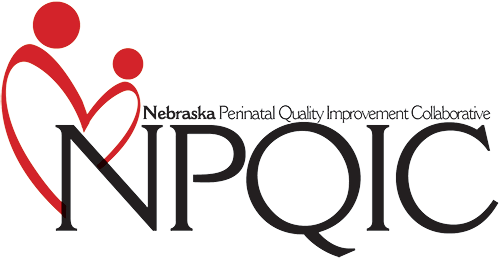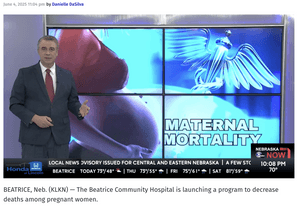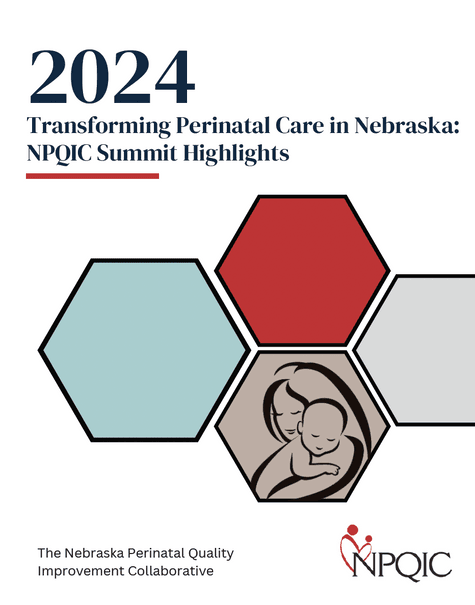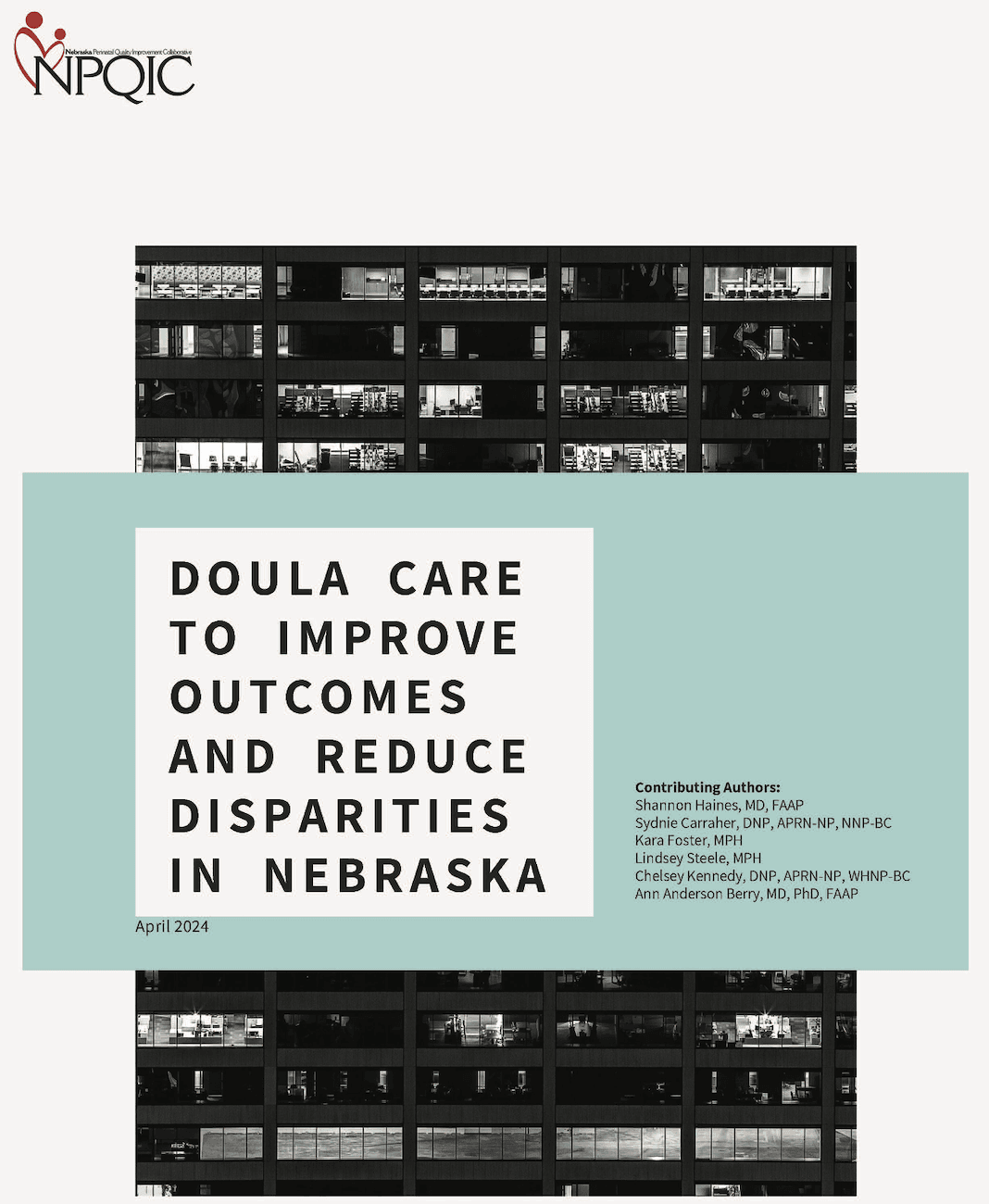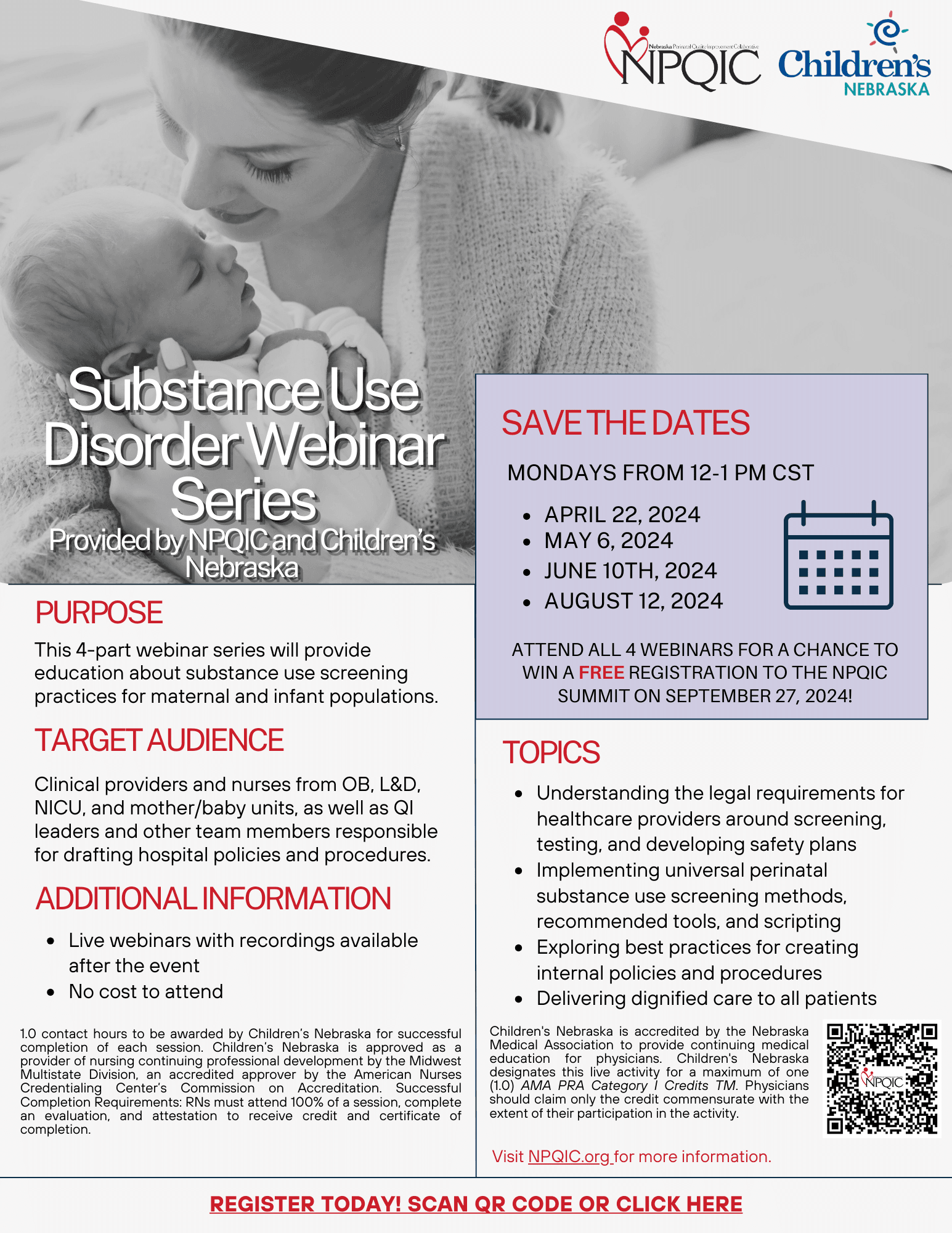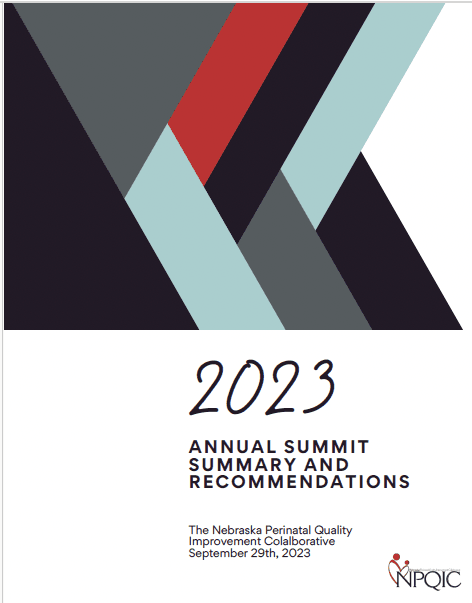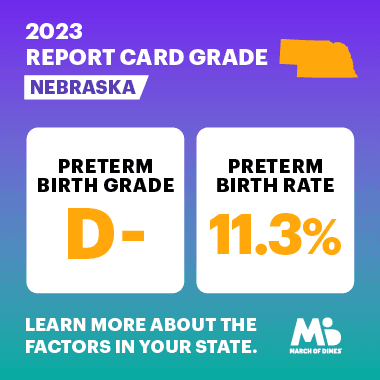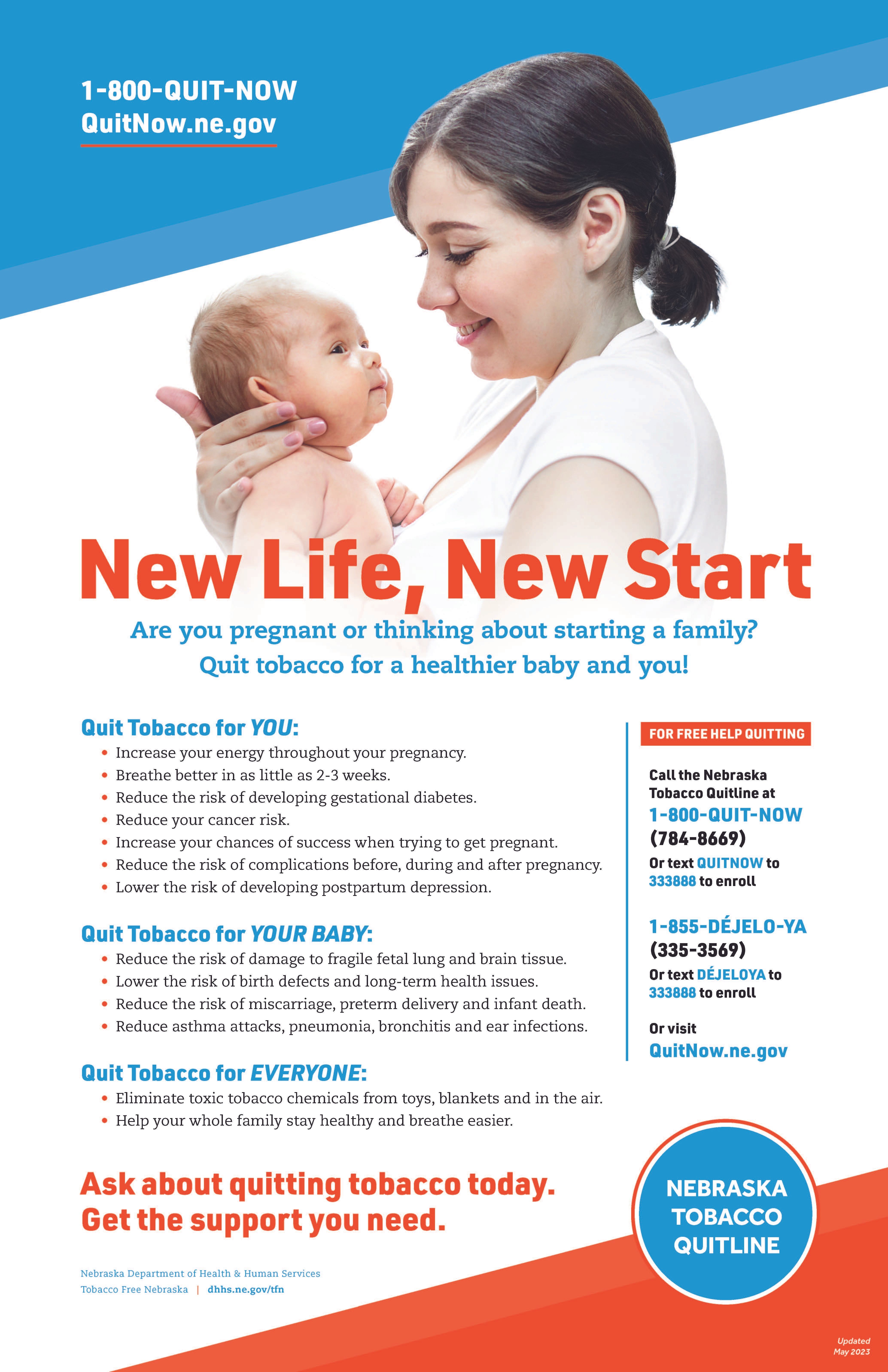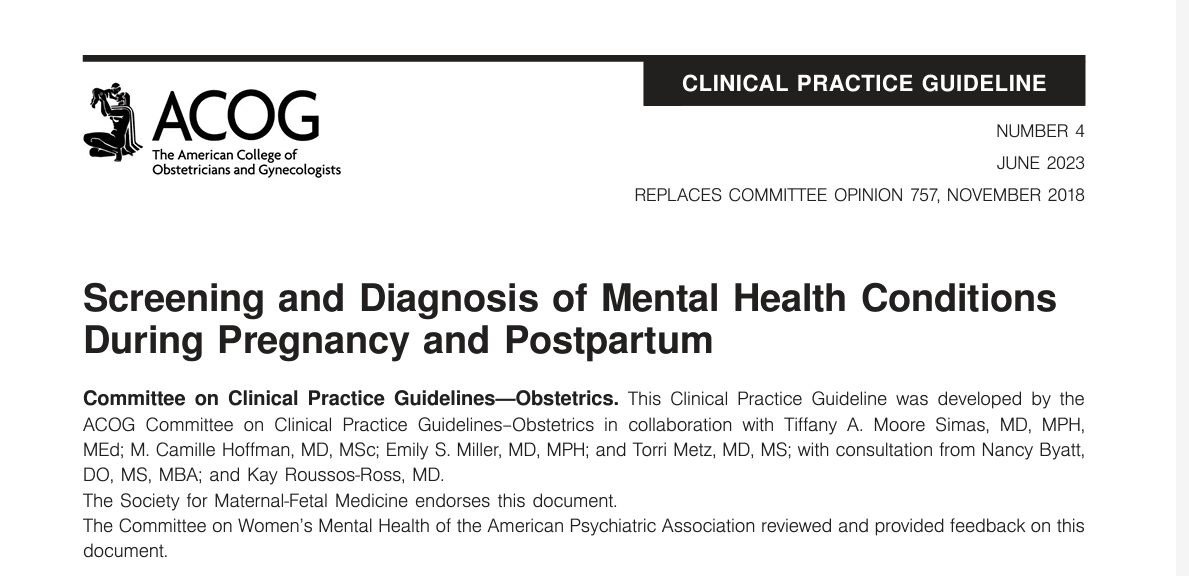Celebrating Beatrice Community Hospital's fantastic work with our Respectful Care Initiative! Delivering dignified, patient-centered care for their perinatal patients and families - this is healthcare at its best!
The American Academy of Pediatrics (AAP) has released updates to its clinical recommendations for critical congenital heart disease (CCHD) screening in newborns. Since becoming part of the U.S. Recommended Uniform Screening Panel in 2011, this simple pulse oximetry screening has become mandatory across all U.S. states and territories.
The new clinical report, "Newborn Screening for Critical Congenital Heart Disease: A New Algorithm and Other Updated Recommendations," published in Pediatrics January 2025, reflects key learnings from over a decade of nationwide implementation. The recommended updates include a simplified screening algorithm, improving data collection, and education of providers.
NPQIC’s 2024 Fall Summit, “Transforming Perinatal Care in Nebraska," was held on Friday, September 27th, 2024, in Omaha, NE.
The Summit provided a platform for this multidisciplinary audience to deepen their knowledge of the state of Maternal and Infant Health in Nebraska and identify opportunities for quality improvement.
This summary report shares key takeaways from each presentation andNPQIC’s recommended strategies to transform perinatal care and address policies, systems, and environments impacting maternal health for all Nebraskans. Access the Executive Summary here, and please share it with your colleagues!
The Severe Maternal Morbidity (SMM) Report presents an overview of severe maternal complications of labor and delivery in the State of Nebraska from 2017-2021. During this time period, Nebraska had an SMM rate of 58.5 events per 10,000 delivery hospitalizations.
The report showed disparities in the SMM rates, with women aged 35 years old or older, women with Medicaid as their source of payment, and non-Hispanic Black and Hispanic women having higher rates.
SMM indicators were grouped by category, with the most frequent indicators being hemorrhage, renal, and respiratory complications, followed by other obstetric and cardiac complications.
The White Paper highlights:
• The alarming racial disparities in maternal and infant morbidity and mortality that exist in the U.S. and Nebraska,
including the significant contributing factors and economic burden.
• Potential solutions including the provision of doula care (with a focus on culturally congruent doulas for Black,
Indigenous, and People of Color (BIPOC) communities), implicit bias training for providers, improved access to
prenatal care, and addressing social determinants of health through policy changes.
• Establishing Medicaid reimbursement for doula services in Nebraska is proposed as a key intervention involving
a doula-led workgroup to develop implementation guidelines, training, credentialing, and quality assurance
measures.
• The need for collaborative, multifaceted, and community-driven efforts involving doulas and affected
communities is crucial to implement meaningful, holistic changes and ultimately improve maternal and infant
health outcomes while ending racial disparities.
We encourage you to review the White Paper to understand Nebraska's maternal health landscape better and, most importantly, identify opportunities for policy, systems, and environmental changes that could significantly improve outcomes for ALL Nebraska mothers, babies, and their families.
The Nebraska Department of Health and Services released the Maternal Mortality Review Committee Report for 2017-2021 this month. From 2017-2021, 50 Nebraska women died while pregnant or within one year after the end of pregnancy. Non-Hispanic Black women in Nebraska experienced the highest pregnancy-associated mortality ratio (PAMR), with 110.2 deaths per 100,000 live births, representing 7.5% of total live births but 20% of pregnancy-associated deaths. Twenty-eight percent of maternal deaths were due to a pregnancy complication, 93% of which were found to be preventable.
This month, the Nebraska Department of Health and Services released the Child Death Review Annual Report for 2021. In 2021, at least 122 children died before turning one, an infant mortality rate (IMR) of 5.2 deaths per 1,000 live births. Significant disparities exist in IMR for African American infants compared to White infants, 11.6 vs 5 per 1,000 live births. The top three causes of infant deaths in 2021 were Perinatal Conditions, Congenital Anomalies, and Sudden Unexplained Infant Death (SUID).
On November 16th, the March of Dimes released the 2023 Prematurity Report Card for the United States and Nebraska. The U.S. received a D+ and Nebraska fell to a D- (D). The preterm birth rate in Nebraska climbed to 11.3% (10.8), the highest it has been in the last 10 years. Significant disparities continue to exist for Black and Indigenous Groups.
JOIN US. Friday, Sept. 29th | 7:45 a.m. – 4:34 p.m.
The 2023 NPQIC Fall Summit "Upstream Solutions to Maternal Health Equity" will provide a foundational understanding of the current Black maternal health crisis and the landscape of Black maternal health in Nebraska. Sessions will equip healthcare teams with the most up-to-date practices around severe maternal morbidities, trauma-informed care, and chronic conditions and substance use in pregnancy. Providing evidence-based and equitable care to marginalized populations is critical for improving pregnancy health outcomes in NE.
In March 2023, NPQIC hosted a live Webinar, “Opioid Prescriptions in Pregnancy." This webinar is now available for free CME, DEA MATE, and Opioid Prescriber Credit.
On May 26th, 2023, the Nebraska Perinatal Quality Improvement Collaborative (NPQIC) hosted a meet-and-greet event for the Rooted Doula Care and Support Program, a pilot program that will connect 30 Black pregnant people with the support of full-spectrum doulas at no cost. Other program partners include I Be Black Girl, Nebraska Medicine, the Nebraska Black Doula Collective, and United Healthcare.
The CDC recently released the results of their national survey of Maternity Practices in Infant Nutrition and Care (mPINC) which assesses maternity care practices and provides feedback to encourage hospitals to make improvements that better support breastfeeding.
On May 4th, 2023, the Policy Center for Maternal Mental Health, in collaboration with George Washington University, released the first-ever grading of state efforts in addressing maternal mental health. These State Report Cards provide the first-ever comprehensive view into the state of maternal mental health in America. The U.S. is failing – with 42 receiving Ds and Fs. Nebraska received an F.
